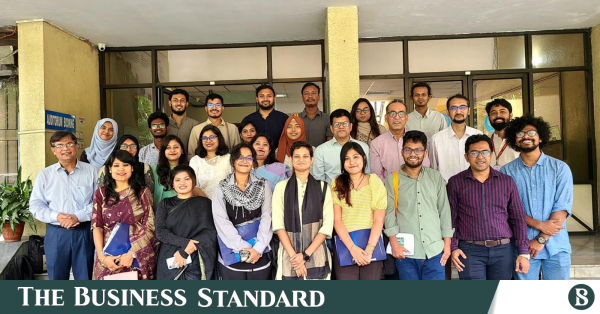Bangladesh’s young climate activists have voiced specific calls for climate justice, adaptation measures, and a greater role in policy-making.
They met with officials from the Ministry of Environment, Forest, and Climate Change at the SIRDAP Auditorium in a dialogue leading up to COP-29 on Tuesday (29 October) to present their priorities and demands for effective climate action, reads a press release.
Sohanur Rahman, executive coordinator of YouthNet Global, stressed that climate change is “a fight for survival” for Bangladesh’s youth.
“We need our government to go beyond promises and champion climate justice at COP-29,” he said, calling for robust adaptation strategies and financial safeguards to protect the most affected communities.
Rahman also emphasised that youth voices must be present “at every decision-making table,” not only for representation but to influence real policy change.
Farzana Faruk Jhumu, a youth advocate with UNICEF Bangladesh, was encouraged by the government’s commitment to engaging young voices. She called for structured youth involvement in the negotiation process at COP-29, noting that “Youth engagement is not just a buzzword but a process.” She highlighted the importance of Bangladesh’s position paper, seeing it as a tool for youth activists to engage directly with global negotiations and advocate for Bangladesh’s unique needs on the international stage.
Shah Rafayat Chowdhury, Co-Founder of Footsteps, emphasized the importance of resilience in the face of escalating climate events. “Adaptation measures are crucial for protecting livelihoods across Bangladesh,” he said. “Our communities have shown incredible resilience, but without concrete adaptation plans and investment, this resilience can only go so far.”
He urged leaders to spotlight adaptation not just as a response but as a foundational element in Bangladesh’s climate strategy.
Other speakers added specific demands.
Saila Shabnam Richi of YouthNet Global called for increased accountability from developed countries on climate financing, while Fariha Sultana Aumi from Fridays for Future Bangladesh urged the government to push for legally binding commitments on carbon reduction targets at COP-29. Both activists expressed the need for a global commitment to loss and damage compensation, essential for countries like Bangladesh facing the brunt of climate impacts.
As the event concluded, participants reiterated their demands for a youth-centred approach at COP-29, calling on the government to reflect youth-led climate justice priorities in its official stance. Their collective voices highlighted a demand for urgency, accountability, and lasting solutions for Bangladesh’s future in a rapidly changing climate.


